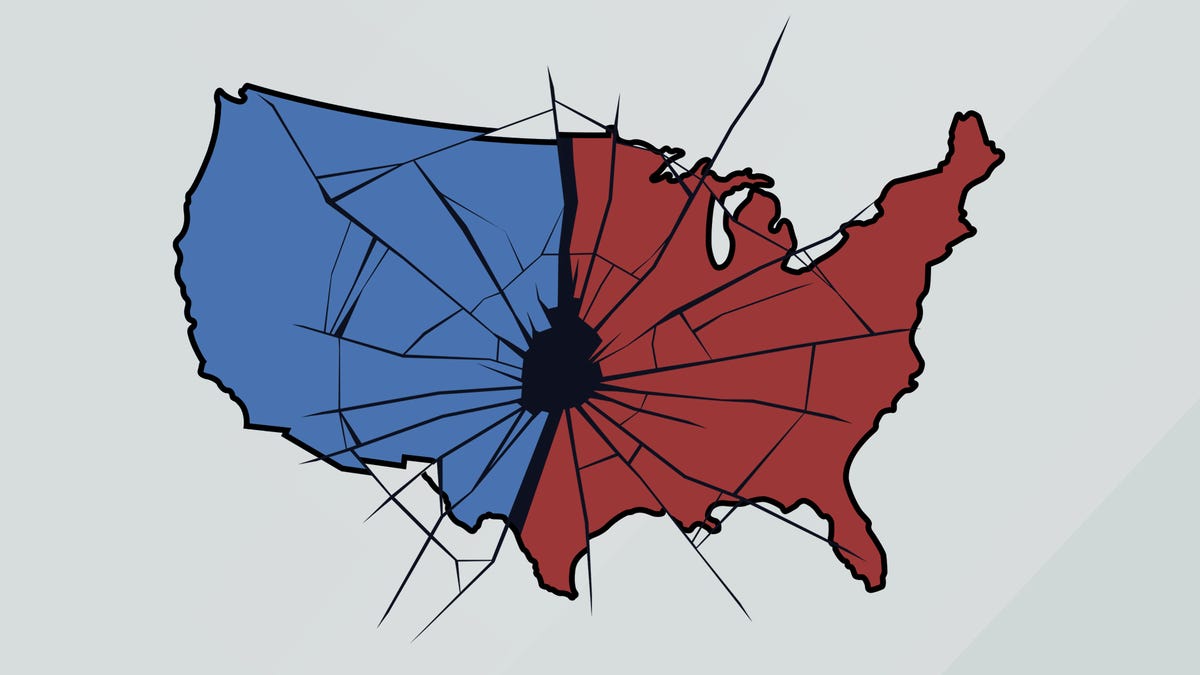The brutal shooting of conservative activist Charlie Kirk on a college campus shocked the nation and is forcing it to confront what appears to be an increase in political violence across the country.
Kirk was shot by a rifle-wielding gunman during an event at Utah Valley University on Sept. 10. The killing ignited a social media firestorm amid a statewide search for the killer.
Learn more: Trump says ‘vicious radicals’ on left are the problem.
Police arrested Utah resident Tyler Robinson, 22, on Sept. 11 as a suspect in the shooting.
With Robinson in custody, Utah Gov. Spencer Cox, a Republican, asked young Americans to reject violence in the wake of Kirk’s death. “You are inheriting a country where politics feels like rage, it feels like rage is the only option,” Cox said.
Has there been an increase in political violence in the U.S.?
The first six months of 2025 saw an 85.5% increase in terrorist attacks within the United States compared to the same time period last year, according to analysis from the University of Maryland’s Study of Terrorism and Responses to Terrorism (START).
Can’t see our graphics? Click here to reload the page.
START has been compiling this database of terrorism and targeted violence in the United States, including political violence, since January 2023. The university’s been tracking terrorism since 2001, when it launched its Global Terrorism Database, which tracked global acts of terrorism from 1970 through 2020.
Both databases define terrorism as “the threatened or actual use of illegal force and violence by a nonstate actor to attain a political, economic, religious or social goal through fear, coercion or intimidation.”
Their analysis found that about a third of the terrorist events that occurred in the first half of this year targeted government facilities and personnel.
Michael Jensen, START’s research director, noted in his analysis that these 2025 terrorist plots and attacks “were not driven by a single political goal, ideology or movement, but instead emanated from across the political spectrum.”
Some examples of terrorist events included within the analysis are:
◾Jan. 1: A Texas resident affiliated with ISIS drove a truck with bombs inside into a crowd on Bourbon Street in New Orleans, killing 15 people, including himself, and wounding dozens.
◾March 6: A 17-year-old threw lit fireworks at Glendale, Arizona, police officers during an immigration protest, causing injuries to 22 officers.
◾June 1: An Egyptian immigrant threw Molotov cocktails into a crowd of protestors in Boulder, Colorado, marching for the release of hostages held in Gaza, injuring 15 ‒ one of whom died from injuries.
How do Americans feel about political violence?
The Public Broadcasting Service, National Public Radio, and Marist Poll asked 1,305 U.S. adults in 2024 if they thought Americans had to use violence to get the country back on track.
How do members of political parties feel about political violence?
YouGov polled 2,623 U.S. adults on Sept. 10 and asked if they thought it was ever justified for citizens to resort to violence to achieve political goals.
YouGov polled 2,623 U.S. adults on Sept. 10 and asked them how big a problem political violence is in the U.S. today?
Cox is a long-time champion of civility and an opponent of political polarization, USA TODAY reported.
That’s in comparison to some left-wing posters on social media who reacted to Kirk’s death, according to NPR. Others on the right said the left is “at war with us.”
CONTRIBUTING Cybele Mayes-Osterman, Thao Nguyen, Jeanine Santucci, Joey Garrison, Christopher Cann, David DeMille, N’dea Yancey-Bragg, Swapna Venugopal Ramaswamy, Davis Winkie, Nick Penzenstadler, Aysha Bagchi, Dinah Voyles Pulver, Josh Meyer, Will Carless, Suhail Bhat
SOURCE USA TODAY Network reporting and research; Reuters; yougov.com; PBS/NPR

